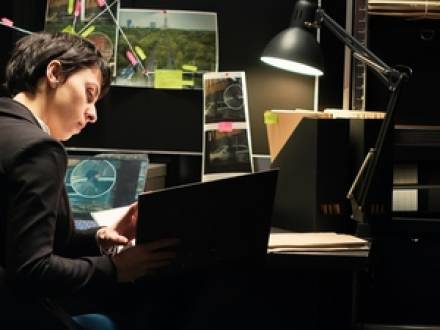Challenging Illinois Electronic Surveillance in Criminal Cases
 Electronic surveillance is no longer exclusive to spy thriller movies; it is a powerful tool used by prosecutors in Illinois state criminal cases. From wiretapping phones to hiding microphones to capture personal conversations, electronic surveillance (720 ILCS 5/14) helps law enforcement record conversations and gather evidence to build a strong criminal case. Surveillance orders are not unlimited, and when mistakes are made in how the order is issued or executed, the evidence could become inadmissible in court.
Electronic surveillance is no longer exclusive to spy thriller movies; it is a powerful tool used by prosecutors in Illinois state criminal cases. From wiretapping phones to hiding microphones to capture personal conversations, electronic surveillance (720 ILCS 5/14) helps law enforcement record conversations and gather evidence to build a strong criminal case. Surveillance orders are not unlimited, and when mistakes are made in how the order is issued or executed, the evidence could become inadmissible in court.
If you are facing Illinois criminal charges that rely on information gathered from covert electronic surveillance devices, it is essential to understand that these orders can be challenged. When you have a highly skilled Naperville, IL criminal defense attorney as your legal advocate, you can expect a strong defense and the best possible outcome to your charges.
What Are Illinois Electronic Surveillance Orders?
Illinois electronic surveillance orders give law enforcement and other governmental agencies authorization to intercept or gather electronic information for criminal investigations. These orders are subject to strict legal requirements and constitutional limitations, including the federal Electronic Communications Privacy Act (ECPA) and the Illinois Eavesdropping Act. The Eavesdropping Act made it illegal to record a conversation without the consent of all parties involved.
This means that for most situations, it is necessary to have an individual’s permission to record his or her conversation. Law enforcement can, however, use electronic surveillance when a judge issues an order for wiretapping or interception of electronic communications. The application for a surveillance order must include the details of any prior attempt to obtain authorization, as well as the location or locations and every individual involved in the investigation.
Prosecutors must show compelling probable cause that a crime is being committed to obtain a surveillance order. Surveillance orders are most commonly used in drug trafficking, terrorism, organized crime, corruption, and conspiracy cases, although they can be used in other violent criminal cases as well.
What Are the Most Common Grounds for Challenging Illinois Surveillance Orders?
An experienced criminal defense attorney will comprehensively examine the surveillance order to determine whether it was properly granted. Some of the grounds for challenging a surveillance order include:
- The surveillance order was improperly authorized; only the Attorney General or State’s Attorney can seek a surveillance order, and it must be approved by a judge.
- The surveillance order was granted on weak or unverified information.
- The scope of the surveillance order was overbroad, covering people or conversations beyond what Illinois law allows.
- The legal requirement to limit audio recordings to conversations relevant to the investigation was not adhered to.
- There were procedural errors involved in obtaining the surveillance order, including mistakes in filing, timing, or execution.
Can Evidence Obtained from an Illegal Surveillance Be Suppressed?
If it can be shown that the electronic surveillance order was not obtained legally, or there were other issues with the order, a defense attorney will file motions to suppress any information gathered as a result of the order. This is known as the "fruit of the poisonous tree" doctrine, excluding all evidence gathered from an unlawful surveillance.
If the state’s primary evidence is excluded, they may not have sufficient evidence to continue prosecuting the case, and the defense attorney may ask that the charges be dismissed. At a minimum, an illegal surveillance order can have a positive impact on plea negotiations and trial strategy for the defendant.
Contact a DuPage County, IL Criminal Defense Lawyer
If you have been charged with a serious Illinois crime and much of the evidence against you comes from electronic surveillance, the surveillance order may be subject to challenge. A knowledgeable Naperville, IL drug crimes attorney from the Law Office of Patricia Magaña, LLC can identify any flaws in surveillance authorizations, file suppression motions, and protect your rights.
Attorney Magana has in-depth knowledge of criminal defense, and with over 15 years of experience, she has successfully represented many clients, helping them get their lives back on track. To schedule your free consultation, call 630-448-2001. Attorney speaks Spanish.

 630-448-2001
630-448-2001






